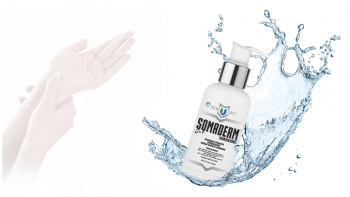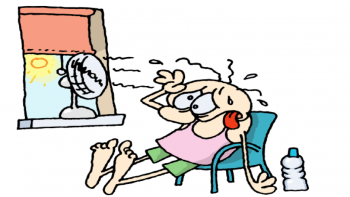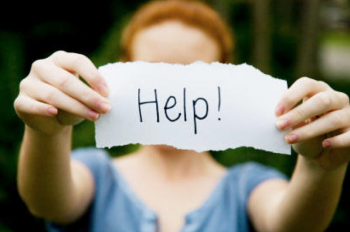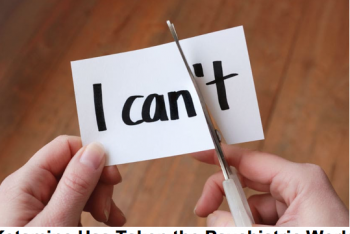WELLNESS--It is no secret that addiction recovery can be one of the hardest things to do, but those who suffer from a co-occurring mental illness may have a more difficult time staying sober than those who do not.
While dual-diagnosis treatment is ideal for the majority of people attending drug rehab, mental illness is sometimes overlooked. When mental illness is left untreated in and after rehab, a person may become more susceptible to relapse.
What are co-occurring disorders?
Co-occurring disorders refer to the presence of a mental health condition and a substance use disorder. Approximately one-third of all people who suffer from depression also suffer from addiction and between 48% and 60% of people who suffer from bipolar disorder have a substance use disorder. Overall, at least half of the two million Americans with mental illness abuse drugs or alcohol. In addition, the development of a substance use disorder often perpetuates mental illness so it can be difficult to determine which condition came first.
In cases where the mental illness came first, many people begin self-medicating to cope with stress, anxiety, depression, and other symptoms of mental illness. On the contrary, those who develop a substance use disorder first experience major chemical changes in the brain which can lead to the development of a co-occurring mental health condition.
Those who struggle with co-occurring mental health and substance use disorders have a greater risk of relapse because they face additional impairment of their life skills and decision-making processes. Much of this is contributed to the stigma that so frequently surrounds both mental illness and addiction, making many people who are suffering afraid to reach out for the help they desperately need.
How do co-occurring disorders go overlooked?
Diagnosing co-occurring disorders can be difficult because many symptoms of mental illness are similar to those of substance use disorders. Symptoms of substance abuse will frequently mimic, mask, and exacerbate the symptoms of mental illness.
A person who suffers from depression may show symptoms of weight loss, sleep disturbances, and poor concentration. All of these symptoms can also be present in those who are experiencing an addiction. On the other hand, those who suffer from bipolar disorder may experience mood swings, impulsivity, and irritability, which are all common symptoms seen in a person with a substance use disorder.
Depression diagnosis is missed 50% of the time in primary care settings and 40% if those suffering from bipolar disorder are misdiagnosed. In order to maximize the potential to maintain long term sobriety, dual diagnosis treatment is the best course of action for those suffering from addiction.
What happens when dual diagnosis is left untreated?
Living with co-occurring disorders can make everyday life challenging. Since mental illness and substance abuse perpetuate each other, symptoms can become worse if left untreated. Out of the 9 million Americans who abuse substances that have an undiagnosed mental health disorder, only 7% receive the dual diagnosis treatment necessary to improve their well-being and prepare them for long-term sobriety.
When a dual diagnosis individual is not diagnosed and treated for their mental illness, they are more likely to relapse and begin self-medicating. Failing to recognize and treat co-occurring disorders can lead individuals into a toxic cycle of attempting to cope with symptoms of mental illness, relapse, and a rapid decline in emotional and mental health.
Untreated mental illness can also result in a wide variety of additional risks. The National Institute of Mental Health explains that if a mental illness goes untreated, it can lead to more severe episodes and extreme symptoms arising. The earlier a mental health condition is diagnosed and treated, the better outcome a person will have.
Mental illness and substance abuse can lead to devastating health problems as they damage the body’s internal organs and negatively impact one’s overall well-being. People with depression are at a greater risk of hormone abnormalities, metabolic changes, heart disease, and conditions related to inflammation.
Those who suffer from an undiagnosed mental illness have higher rates of suicide, homelessness, criminal activity, and unemployment than those who do not. When it comes to maintaining sobriety, any or all of these factors can be a recipe for disaster, making it imperative to identify and treat co-occurring disorders through dual diagnosis therapy.
The purpose of dual diagnosis treatment is to treat both mental illness and substance abuse simultaneously by fostering healthy coping mechanisms to deal with everyday life. In many cases, prescription medications can be prescribed to help alleviate many symptoms of mental illness while the person gets acclimated to their new, sober lifestyle. Aside from medications and coping skills, dual diagnosis therapy can integrate different forms of counseling into the program, such as Cognitive Behavioral Therapy (CBT), to best meet the needs of each client, preparing them to maintain sobriety.
(Cassidy Webb is an avid writer who advocates spreading awareness on the disease of addiction. Her passion in life is to help others by sharing her experience, strength, and hope.)
-cw
























